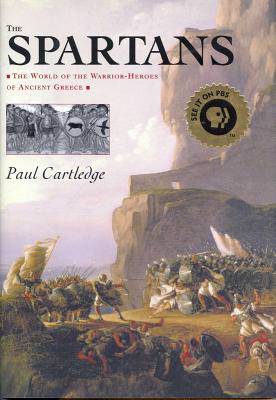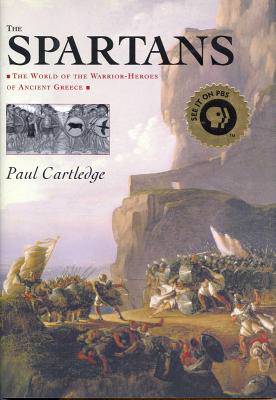
- Retrait gratuit dans votre magasin Club
- 7.000.000 titres dans notre catalogue
- Payer en toute sécurité
- Toujours un magasin près de chez vous
- Retrait gratuit dans votre magasin Club
- 7.000.0000 titres dans notre catalogue
- Payer en toute sécurité
- Toujours un magasin près de chez vous
Description
The Spartans is a compelling narrative that explores the culture and civilization of the most famous "warrior people": the Spartans of ancient Greece, by the world's leading expert in the field. Sparta has often been described as the original Utopia--a remarkably evolved society whose warrior heroes were forbidden any other trade, profession, or business. As a people, the Spartans were the living exemplars of such core values as duty, discipline, the nobility of arms in a cause worth dying for, sacrificing the individual for the greater good of the community (illustrated by their role in the battle of Thermopylae), and the triumph of will over seemingly insuperable obstacles--qualities that today are frequently believed to signify the ultimate heroism. Paul Cartledge is the distinguished scholar and historian who has long been seen as the leading international authority on ancient Sparta. He traces the evolution of Spartan society--the culture and the people, as well as the tremendous influence they had on their world and even ours. He details throughout the narrative the lives of such illustrious and myth-making figures as Lycurgus, King Leonidas, Helen of Troy (and Sparta), and Lysander, and explains how the Spartans, although they placed a high value on masculine ideals, nevertheless allowed women an unusually dominant and powerful role--unlike Athenian culture with which the Spartans are so often compared. In resurrecting the ancient culture and society of the Spartans, Cartledge delves deep into ancient texts and archeological sources and complements his text with illustrations that depict original Spartan artifacts and drawings, as well as examples of representational paintings from the Renaissance onwards--including J.L. David's famously brooding "Leonidas." This illuminating volume that ties in with the PBS television series of the same name, airing in the summer of 2003. Booklist called Cartledge's The Greeks: Crucible of Civilization, a companion to the PBS series, "superb," while The International History Review called Cartledge's The Cambridge Illustrated History of Ancient Greece "an original and insightful work."
Spécifications
Parties prenantes
- Auteur(s) :
- Editeur:
Contenu
- Nombre de pages :
- 304
- Langue:
- Anglais
Caractéristiques
- EAN:
- 9781585674022
- Date de parution :
- 26-05-03
- Format:
- Livre relié
- Format numérique:
- Genaaid
- Dimensions :
- 160 mm x 225 mm
- Poids :
- 498 g

Les avis
Nous publions uniquement les avis qui respectent les conditions requises. Consultez nos conditions pour les avis.






